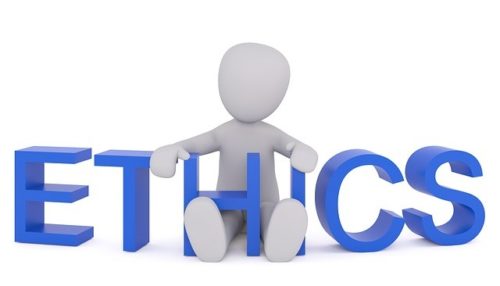-
Montana 2 Credit Ethics Bundle - Esquire CLE Provider #1333 Legal Ethical Concerns and Case Law In this timely and compelling ethics CLE, attorney, Kyle Robinson presents “Legal Ethical Concerns and Case Law.” Mr. Robinson begins the program with an overview of the ABA model rules and explains lawyer’s character and residency requirements to practice law. Attorney Robinson continues the discussion explaining ethical rules related to lawyer discipline and lawyer client relationships and Professionalism matters. The course, also, covers rules with regards to advertising and attorney fees. The program concludes with an analysis of confidential information, bias, and conflicts of interest. This program is for any attorney who wants to practice law ethically and professionally. Agenda: Residency Requirements Character Requirements Discipline The Attorney’s Oath Lawyer- Client Relationship Advertising and Solicitation Attorney Fees Confidential Information Bias Conflicts of Interest
-
Keeping Your Client's Trust Even When Things Go Wrong Ever wonder why clients become so upset and you, their lawyer, are faced with explaining so much to alleviate your client's anxiety as you watch trust slipping away? Take this course and find out what's at the source of the client's reaction (sometimes over-reaction) and learn how to reduce and even eliminate these reactions. Learn easy strategies to reduce/eliminate client grumblings and complaints while at the same time creating strong trusting relationships that withstand litigation battles and heated negotiations.
-
Copyright for Artists In this timely and compelling CLE program, Attorney, Gale Elston presents Copyright for Artists. During this thorough and engaging program Attorney Eltson begins with an overview of intellectual property with regards to artists and the history of copyright. The program continues with a detailed discussion of relevant case law and statutes. Attorney Elston also covers fair use and it’s limitations. The program concludes with an explanation of the Visual Rights Act. This program is a must for any attorney. Agenda:
- Overview areas of Intellectual Property law
- History of Copyright
- Difference between published and unpublished work
- Case Law and Statutes
- Ideas vs. Expression
- Elements of Copyright Ability
- Concept of publication
- Exclusive Rights
- Fair Use
- Transfers, Procedure, Damages
- Visual Artist Rights Act
-
Ethics Compliance for Solo Practitioners In this timely and compelling CLE program Attorney, Todd Kulkin, presents Ethics Compliance for Solo Practitioners. Mr. Kulkin starts the program with a discussion on Confidentiality, Conflict Of Interest, and Solicitation & Networking within the ABA model rules. The program continues with an overview of No-Contact Rule, Referral Fees, and Communicating With Unrepresented Persons. Additionally Mr. Kulkin will cover duties to prospective clients. The program concludes with an explanation if a lawyer should take equity. This program is a must for any attorney. AGENDA:
- Confidentiality
- Conflict Of Interest
- Solicitation & Networking
- No-Contact Rule
- Referral Fees
- Communicating With
- Unrepresented Persons Attorney as third-party neutral
- Trust account issues
- Non-law practice activities
- Duties to Prospective Clients
-
Impaired Lawyers: A Call for Action - Description During this timely, and compelling CLE program Attorney, Brian Quinn, presents “Impaired Lawyers: A Call for Actions”. Mr. Quinn begins the program with an overview of statistics and warning signs of substance abuse. The program continues with an explanation on why lawyers are impacted and the barriers lawyers confront in seeking help. Attorney Quinn also discusses the stigma with seeking help, dealing with denial, and issues with enabling. The program concludes with how attorneys can seek help. This program is a must for any attorney. Agenda
- Statistics Overview
- Warning Signs at Law Firms
- Why Lawyers?
- Barriers to Seeking Help
- Stigma
- Dealing Denial
- Enabling
- Seeking Help
-
Coronavirus and Your Mental Health In this timely and compelling CLE program, Attorney, Brian Quinn presents, “Coronavirus and Your Mental Health: A Lawyer’s Guide to Coping with Isolation, Anxiety, and Fear in Uncertain Times”. Mr. Quinn begins the program with a discussion on mental health statistics and symptoms of depression and stress factors. The program continues with an overview of dealing with solitude, anxiety, and fear. Mr. Quinn then explains ethically challenges and some warning signs. The program concludes with challenges of seeking help and how lawyers can seek help. This program is for all attorneys. Agenda
- Mental Health Statistics
- Symptoms of Depression
- Stress Impact and Factors
- How to Distress
- Solitude and Loneliness
- Dealing with Anxiety
- Dealing with Fear
- Ethically Challenges
- Warning Signs
- Challenges with Seeking Help
- How to Seek Help
-
No One Makes It Out Unscathed: The Effects of Personal Trauma and Stress On Our Lives In this timely and compelling CLE program, Attorney, Brian Quinn presents, “No One Makes It Out Unscathed: The Effects of Personal Trauma and Stress On Our Lives”. Mr. Quinn begins the program with a discussion on statistics and symptoms of stress and trauma. The program continues with an overview of warning signs, and dealing with stress and trauma. Mr. Quinn then explains the effects of trauma and the vicarious trauma in the legal profession. The program concludes with challenges of enabling and denial and how lawyers can seek help. This program is for all attorneys. Agenda
- Statistics
- Warning Signs at the Firm
- What is Stress
- Distress
- Dealing with Stress
- Trauma
- Types and Effects of Trauma
- Vicarious Trauma in Legal Profession
- Enabling and Denial
-
Intermediate Topics: TITLE IX In this timely and compelling program, attorney, Adria L. Silva presents, “Intermediate Topics: TITLE IX”. Attorney Silva begins the program with an overview of TITLE IX basics and who can be sued within the Statute of Limitations. The program continues with a discussion of TITLE IX v. TITLE VII. Attorney Silva then covers applicable case law and intermediate topics such as internal investigations, sexual harassment, and gender discrimination. The program concludes with an explanation of the Family Education Rights and Privacy Act. This program is for any attorney. Agenda:
- TITLE IX Basics
- Who Can Be Sued and SOL
- Conditions Precedent
- TITLE IX v. TITLE VII
- Internal Investigations
- Sexual Harassment
- Gender Discrimination
- Retaliation
- Family Education Rights and Privacy Act
-
Benefiting from New Markets Tax Credits In this timely and compelling CLE program, attorneys, Julia Fendler and Trey Parker present “New Market Tax Credits”. The New Markets Tax Credit (“NMTC”) Program is administered by the Community Development Financial Institutions Fund (the “CDFI Fund”) of the United States Department of the Treasury. The NMTC Program is a federal statutory program, created in 2000 and currently extended through 2025, that is designed to encourage capital investment in low-income communities that have had inadequate access to capital. It is codified in Section 45D of the Internal Revenue Code. This program is for any attorney. Agenda:
- Program Basics
- Major Players and Definitions
- Application and high level NMTC allocation facts
- What can NMTC proceeds be used for?
- Project Requirements
- Secondary criteria
- Typical Transactions
- What Other subsidies work with NMTCs?
- Conclusion
-
How Marijuana Use Can impair an Attorney’s Ability to Perform Legal Services with Competence: The Mental, Physical, Addictive, and Impairing Side Effects Many attorneys have not heard how much stronger marijuana is today. In this timely presentation, Heidi will provide basic information about the new high potency products. By understanding the side effects these new products present, a lawyer can recognize the warning signs and reduce his/her risk for addiction, mental illness and impairment. Heidi Anderson - Swan’s brother was a homeless drug addict with schizophrenia who went to jail eighteen times. In this CLE, she will begin by sharing their personal stories. She will continue with up-to-date information about the risks of marijuana use every lawyer should know. Agenda -Heidi & Kirk: Occasional User and Chronic User of 1970’s Pot -Marijuana and Psychosis/Schizophrenia, Anxiety, Depression, Bipolar Disorder, Suicide -How Weed Has Changed Since the 1970’s -High Potency Products: What Are They? What Are Their Side Effects? -How to Detect Warning Signs -Potential for Impaired Driving
-
Attorney’s Guide to Online Defamation & Website Removal This program, presented by internet defamation attorney and published author Paul Sternberg, will provide an overview of what constitutes online defamation. Mr. Sternberg will discuss in detail the complex web of laws governing defamatory statements including the First Amendment, the Communications Decency Act, the Digital Millennium Copyright Act, recent case law, and more. Other topics to be discussed include the difference between libel and slander and considerations for determining if and when to file suit for defamatory conduct. The mechanics of a defamation suit will then be explored in great detail, including a review of cease and desist letters, anti-SLAPP laws, discovery exceptions, and much more.
- The First Amendment and Protected Speech
- Determining the Defaming Party
- Understanding Liability Under the CDA and the DMCA
- Legal Strategies to Consider in Defamation Cases
- Building a Defamation Case or Defense and Removing a Website
- Libel vs. Slander
- Weighing the Decision to Sue
- Deploying a Cease and Desist Letter
- SLAPP and ANTI-SLAPP Laws
- The Streisand Effect
- Elements to Prove
- Statutes of Limitation
-
Complex Trauma in Criminal Mitigation Cases: How Abuse and Neglect Cause Abnormal Development
Many criminal defendants have suffered complex trauma that must be explicated through presentence reports by mitigation experts. This seminar will focus on major approaches to conceptualize the harm that many of our clients have suffered in childhood and a developmental perspective focusing on the effects of abuse and neglect. The seminar will also consider how these matters are assessed in a psychosocial evaluation and major psychopathology that results from complex trauma.
Learning Objectives:
- Identify the ACE criteria in the context of complex trauma.
- Understand a developmental perspective of abuse and neglect in the context of complex trauma.
- Understand how psychosocial evaluations by mitigation experts consider complex trauma.
- Understand the major areas of psychopathology that result from complex trauma.



